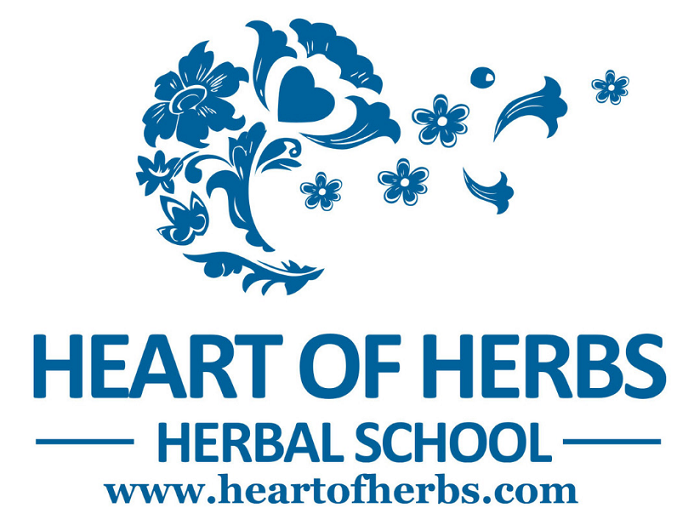What is Western Herbalism?
Western Herbalism refers to the practice of using vitamins, minerals, and plant-based formulations—such as teas, capsules, tinctures, and extracts—to prevent and treat illnesses. This approach is commonly practiced across Europe and North America and has gained popularity as a natural alternative to synthetic medications. While our course focuses on Western Herbalism, you’ll also find valuable resources and information on various herbal traditions from around the world.
How Does Western Herbalism Work?
Western Herbalism works by supporting the body’s natural healing processes. Herbal formulations interact harmoniously with the body’s systems, helping to stimulate and strengthen the body’s defenses. Unlike conventional medicines that often address only the symptoms, herbal remedies aim to treat the root cause of the problem, promoting holistic healing and long-term wellness. Their safety and effectiveness, when used correctly, provide reassurance and confidence in their potential use.
What Conditions Respond Well to Herbal Treatments?
Many conditions can benefit from Western Herbalism. Herbs are excellent for both acute and chronic health issues and can also be used as daily tonics to maintain overall health. Common ailments that respond well to herbal treatments include:
- Respiratory issues: Colds, flu, bronchitis, and asthma.
- Digestive problems: Heartburn, indigestion, constipation, and diarrhea.
- Women’s health: PMS, menstrual issues, menopausal symptoms, and pregnancy-related discomforts.
- Men’s health: Prostate problems and sexual dysfunction.
- Emotional well-being: Depression, anxiety, and stress management.
Herbs can be used as a complementary therapy alongside conventional treatments, especially for chronic conditions, providing a natural support system for the body’s healing.
Is Herbalism Safe for Children?
Yes, herbal remedies can be safe and effective for children when used properly and under the guidance of a knowledgeable practitioner. It’s crucial to consult with a professional before administering herbs to children, as they are more sensitive and may react quickly to herbal treatments. This reassurance about the safety of herbal remedies for children makes the audience feel secure and informed.
Can Household Pets and Farm Animals Benefit from Herbal Medicine?
Absolutely, but with caution. Herbal therapy can be beneficial for pets and farm animals, but it should be administered and monitored by a veterinarian or an herbalist experienced in animal care. Animals are more sensitive to herbs than humans, so it’s essential to educate yourself on pet health and start with simple remedies to gauge tolerance.
Is Western Herbalism FDA-Approved?
Yes, most herbal remedies are classified as dietary supplements by the FDA, meaning they are regulated as foods rather than drugs. Under the Dietary Supplement and Health Education Act (DSHEA) of 1994, manufacturers can list the actions of their formulations on labels, provided no health claims are made without extensive research and FDA approval. The herbal industry also adheres to certain standards for harvesting, manufacturing, and handling herbal products, ensuring their safety and quality.
How Long Does it Take to See Results from Western Herbal Remedies?
Herbal remedies work by supporting the body’s systems rather than masking symptoms, so they may take longer to show effects compared to conventional medicine. In acute situations, results can be swift, while chronic conditions may require consistent use over weeks or months. Patience and regular use are essential for herbal remedies to be effective.

What is Herbal Medicine?
Herbal medicine involves the use of plant-based remedies—such as ointments, oils, dried herbs, and extracts—to treat a variety of health conditions. It is one of the oldest forms of medicine, rooted in traditional knowledge and now supported by scientific research that confirms the efficacy of plant constituents. Herbalists combine this ancient wisdom with modern diagnostic techniques to create personalized remedies for their clients.
Are There Any Precautions I Should Take While Using Herbs?
Even though herbal remedies are natural, it’s essential to use them responsibly. Some people may have allergic reactions or sensitivities to certain herbs, and in rare cases, herbs can interact with medications. Always start with recommended dosages, monitor for any adverse reactions, and consult a healthcare provider if you have concerns. Herbal remedies should be treated with the same caution as any other medication.
Can I Take Herbs with Prescription and Over-the-counter Medications?
In many cases, herbs can be safely used alongside prescription or over-the-counter medications. However, it’s crucial to consult with your healthcare provider before combining them, as some herbs can interact with medications, either enhancing or diminishing their effects. Treat herbs as medicinal and always seek professional advice.
Is a Professional Herbalist Always Necessary?
While it’s beneficial to consult a professional herbalist, especially for complex health issues, many resources are available for those who prefer self-study. Reliable information can be found in books, online, and through courses like those offered by Heart of Herbs Herbal School. When researching online, ensure the information comes from reputable sources and consider working with a professional for more personalized guidance.
How Can I Find a Professional Western Herbal Practitioner in the United States?
You can start by asking for recommendations at your local health food store or herbal shop. Many herbalists maintain an online presence, so a web search can also be effective. Additionally, you can contact local herbal schools for a list of qualified practitioners in your area.
How Can I Learn More About Western Herbalism?
Learning about Western Herbalism can begin at your local library, bookstore, or online. However, taking a course is one of the best ways to gain a thorough understanding and practical experience. While apprenticeships were once common, modern herbal education is now more accessible through online courses and workshops.
What Can Herbal Medicine Be Useful For?
Herbal medicine can be used to address a wide range of health issues, from digestive disorders and circulation problems to skin conditions and gynecological concerns. Herbalists also treat conditions like anxiety, insomnia, arthritis, and more. According to the World Health Organization, over 80% of the global population relies on herbs for healing, making it the most widely used form of medicine worldwide.
How Do Herbalists Work?
Herbalists focus on treating the whole person, not just the symptoms. They use a holistic approach to identify the underlying causes of health issues and create personalized remedies that support overall well-being. This approach makes the audience feel understood and cared for, as it takes into account their unique health situation and not just the immediate symptoms.
What is the Difference Between Herbal Remedies and Pharmaceutical Medicines?
Pharmaceutical medicines often isolate and synthesize the active ingredients found in plants, while herbal remedies use whole plant parts, maintaining the natural balance of their constituents. This holistic approach is believed to offer a more balanced and effective treatment with fewer side effects. For example, while a pharmaceutical diuretic may deplete potassium, an herbal diuretic like dandelion leaves provides potassium naturally, balancing the body’s needs.
This FAQ aims to guide individuals on their journey through Western Herbalism, whether they are new to the practice or looking to deepen their understanding, by providing clear, comprehensive answers to these frequently asked questions.
Interested in purchasing any herbs? You can find them at Mountain Rose Herbs.
Disclaimer
Disclaimer Blog
The information presented on the Heart of Herbs Herbal School/Demetria Clark websites is for educational purposes only. Heart of Herbs Herbal School/Demetria Clark Education LLC makes neither medical claims nor intends to diagnose or treat medical conditions. Links to external sites are for informational purposes only. Heart of Herbs Herbal School/Demetria Clark neither endorses them nor is in any way responsible for their content. Readers must do their own research regarding the safety and usage of any herbs, recipes, or supplements.
Affiliate Disclosure
Some posts contain affiliate links. When you click on these and make a purchase the cost is the same for you, but we earn a small commission that helps me to provide scholarships to students. We only promote products that we know our clients have liked themselves.
Heart of Herbs Herbal School is a Amazon affiliate. As an Amazon Associate, we earn from qualifying purchases.

